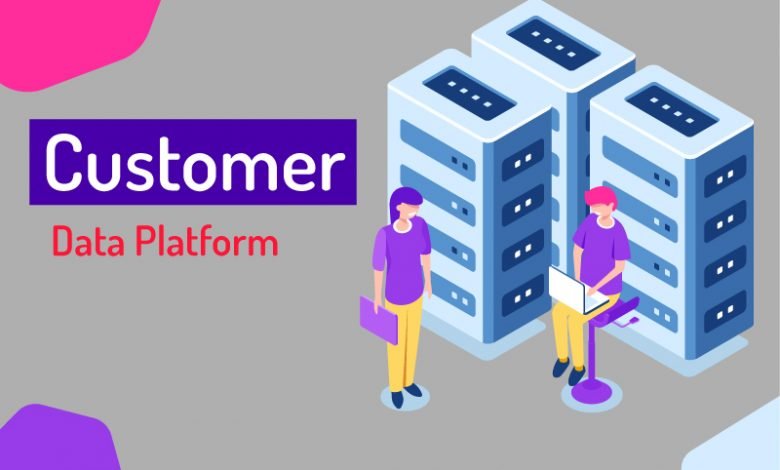
The definitive guide to Customer Data Platform
The term CDP refers to a Customer Data Platform and is a type of software. It is a kind of database software that creates unified records of all your customers, their attributes and their data. A well functioning CDP should easily integrate with your existing data, and allow for its easy retrieval.
Characteristics of CDP
-
Ready solution
All customer data is organized neatly and available to be used immediately. Some technical sources are required to be setup and maintain CDP, and at the same time it does not require a high level of technical skill when compared to traditional data warehousing.
-
Single customer view
When data is collected and unified with a CDP application, it is envisioned through individual data profiles for every customer. This 360-degree view is available due to the fact that all the customer data is based in one unified location.
-
Data unification for the customers
A CDP application unifies all inconsistent data from online and offline sources through multiple channels and combines them to create a single customer view.
-
Accessibility of data from 3rd parties
All the data contained within a CDP is ready for use in 3rd party systems which are focused on adtech and campaign delivery.
CDP role and skill requirements
Unlike other database software programs, a CDP is a tool built mainly for a marketing team however, that does not mean it can be operated and maintain without tech support. To utilize its benefits to the fullest, an organization will typically need these 3 roles.
-
Marketer
This is a person who understands the current market and can suggest business-tailored use of the application by using data from CDP.
-
IT Person
This role helps support the marketing team during the implementation phases of Customer Data Platform and can manage tasks like usage of web-hooks, setting up recommendations on the web, emailing, assistance in integrations etc. To a certain extent HTML, CSS and JavaScript coding is also helpful for building powerful web layers.
-
Analytical Person
A person with the knowledge of how to work with a huge data, what to track in dashboards, analyzing A/B tests and reporting constructive results to the marketing team is also very essential for the proper functioning of CDP.
These skills necessarily do not have to be from 3 separate people but for maximum value from a CDP you will need all the skills.
-
Why is customer data important?
Customers of today expect a lot from the brands they purchase items. Some brands are offering personalized service and chances are that your customers have already experienced it. If you want to keep them as sustainable consumers you also need to provide the necessary consistent customer experience through all the channels with appropriate recommendations and customized communications.
With better services on offer from many businesses, customers have a heightened sense of expectations. This makes retaining the customers of paramount importance and gaining new ones. Losing customers is not really an option anymore. To do this effectively it is crucial to have an accessible, well-maintained, and insightful customer data made possible by an efficient CDP.
-
What kind of customer data is needed by a CDP?
The amount of available digital data floods the traditional database software and at the same time CDP is built to manage this data flow. The type of data needed by CDP consist of the below but are not limit to,
-
Events
This is a customer’s data as per his behavior and actions on a web session, app or a mobile browser.
-
Transactional data
This is the data from e-commerce or point of sale (POS) systems for the customer’s purchases, returns, browsed items and other info from these platforms.
-
Attributes of the customer
These are the names, addresses, birthdays, contact details, etc. The advanced versions of a CDP can also store and use predictions powered by machine learning like the likelihood and probability to purchase.
-
Customer service data
This is mostly the data from customer relationship management (CRM) systems like length and number of interactions, data from live chat, NPS scores, frequency and other relevant data.
-
What makes CDP different from CRM and DMP?
DMP is a packaged system with real time capability and is an open platform with only anonymous data. CRM on the other hand has lasting customer profiles and a first party data priority.
Customer Data Platform, Customer Relationship Management and Data Management Platforms capabilities may sound similar, but they are distinctive and differential in nature.
The only common factor between them is that they are package systems and require IT support.
A CDP builds a complete picture of your customers individually. This creates a 360-degree customer profile which is also call a single customer view. This can then be used by 3rd party tools or built in marketing automation tools to undertake marketing activities and analyze their performance. Welcome to CDP, experience it.




1E5TMy21DM2cR13sQbLukgKBkR3ZSaRbeB
1E5TMy21DM2cR13sQbLukgKBkR3ZSaRbeB
1E5TMy21DM2cR13sQbLukgKBkR3ZSaRbeB
1E5TMy21DM2cR13sQbLukgKBkR3ZSaRbeB